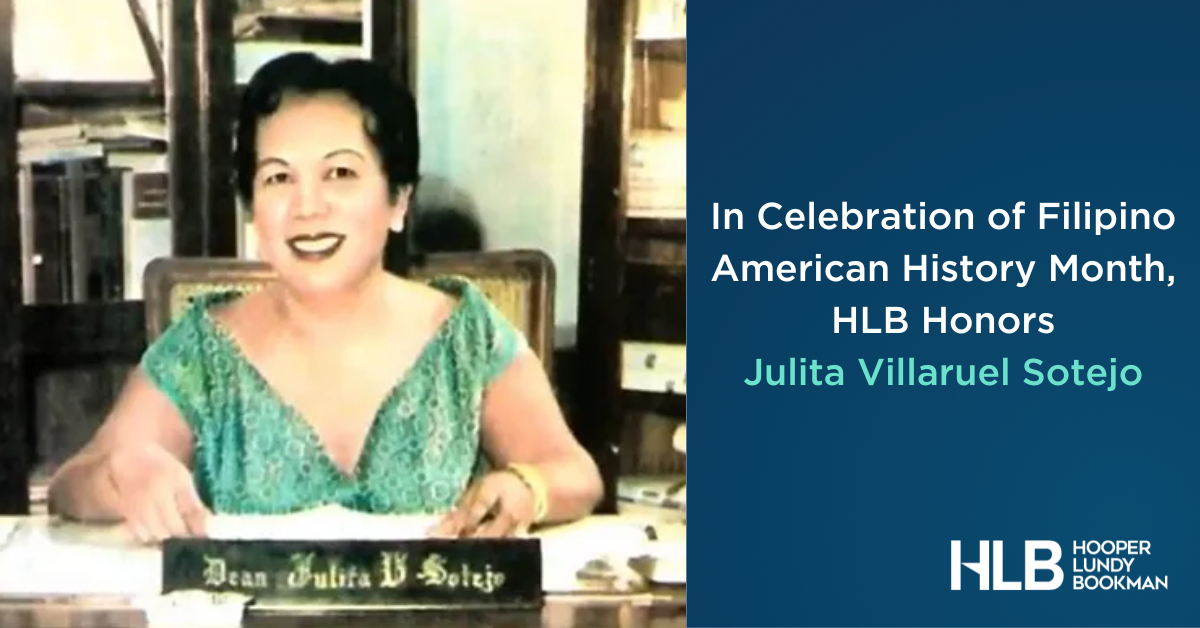
Julita Villaruel Sotejo is a prominent figure in Philippine nursing and is credited with developing the country’s current model of nursing education. Although she had dreams of becoming a lawyer, she pursued a career in nursing due to its growing popularity and the socioeconomic potential that it afforded women. After obtaining her nursing degree, she followed her initial career ambition and enrolled in the Philippine Law School—a decision questioned by many given that public health nursing was the typical next step in nursing education. When asked why she chose to attend law school, Sotejo explained that it was not only to improve her professional status, but also to learn how to advocate for nursing and in turn, advance the physical, spiritual, cultural, intellectual, ethico-moral and legal dimensions of patient care. Following her graduation from law school (as valedictorian), Sotejo became the principal of her alma mater, Philippine General Hospital School of Nursing.
In 1941, Sotejo accepted a Rockefeller Foundation Fellowship to study nursing administration in Canada and the United States. While there, she experienced firsthand the racial inequality that existed in the nursing profession. Indeed, although Filipina/o nurses were generally accepted working with and studying under white nurses, they were not viewed as equals. Despite these obstacles, Sotejo completed her fellowship and enrolled in a master’s program at the University of Chicago. Her thesis examined the various nursing school models found in Canada, the United States, and Europe to determine what type of training program would best produce quality nurses who could meet the health needs of the people of the Philippines. She advocated for the establishment of a direct entry baccalaureate nursing program at the University of the Philippines. Upon her return to the country in 1945, Sotejo went on to become the first dean of the University of the Philippines College of Nursing and her thesis became the framework upon which future baccalaureate entry programs would be based.
Sotejo’s contributions to the nursing profession surpassed the borders of her native country. During her career, she also assumed leadership roles in international organizations and in 1947, during a meeting of the Grand Council of the International Council of Nurses, spoke passionately about racial injustice and the exclusion of Black nurses from participation in council meetings. Her work on the international stage paved the way for the creation of many local nursing bodies across multiple countries, and the establishment of the first international professional organization of Filipina/o nurses. Sotejo’s advocacy and passion for the advancement of nursing education—both in the Philippines and abroad—have left a lasting legacy on the profession, which has continued since her death in 2003.
This month, HLB honors the contributions of Julita Villaruel Sotejo and all Filipina/o nurses to the healthcare profession.
Source: Capucao, Reynaldo, Beyond Western Expectations: Filipina Nurse Leaders Anastacia Giron-Tupas and Julita Villaruel Sotejo, 1910-1950, OJIN: The Online Journal of Issues in Nursing, Vol. 2, Manuscript 7, available here (May 31, 2020).